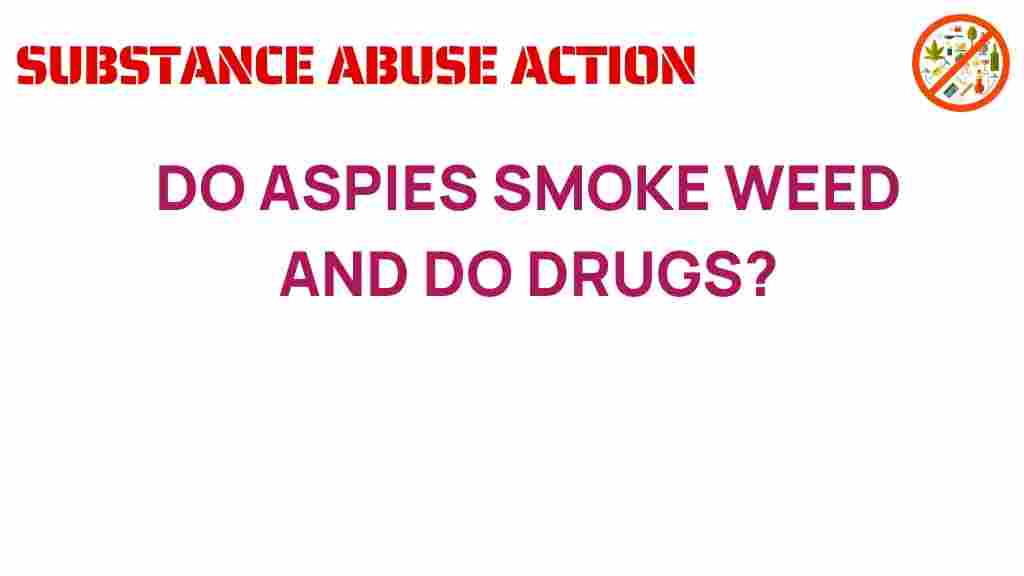Do Aspies Smoke Weed? Understanding Substance Use Among Those with Asperger’s
Asperger’s syndrome, now considered part of the autism spectrum disorder (ASD), is characterized by difficulties in social interaction and nonverbal communication, alongside restricted and repetitive patterns of behavior and interests. Many individuals diagnosed with Asperger’s may face unique challenges that can lead to varying coping mechanisms, including substance use. In this article, we will explore the relationship between Asperger’s, substance use, and cannabis, particularly focusing on teenagers and their mental health.
The Intersection of Asperger’s and Substance Use
Substance use among individuals with Asperger’s can be influenced by various factors. Understanding these factors is crucial for parents, caregivers, and professionals who work with this population. Some key aspects to consider include:
- Social Behavior: Many individuals with Asperger’s struggle with social interactions. This can lead to feelings of isolation and loneliness, prompting some to seek out substances like cannabis as a means of socialization or escape.
- Stress and Anxiety: The pressures of navigating a world that often feels overwhelming can lead to increased stress and anxiety. Some may turn to cannabis as a self-medication strategy.
- Peer Influence: Teenagers with Asperger’s may feel pressured to fit in with their peers, which can lead to experimenting with drugs, including cannabis.
Understanding Cannabis Use in Teens with Asperger’s
Research indicates that adolescents with Asperger’s may be more susceptible to substance use than their neurotypical peers. The reasons for this can include:
- Desire for Acceptance: Teens with Asperger’s often want to connect with their peers and may use cannabis to feel more accepted in social situations.
- Escapism: Cannabis may provide a temporary escape from the challenges associated with Asperger’s, such as social anxiety or sensory overload.
- Curiosity: The teenage years are often marked by experimentation, and those with Asperger’s are not exempt from this behavior.
The Role of Mental Health
Mental health is a significant factor when discussing substance use among individuals with Asperger’s. Many may experience co-occurring conditions such as:
- Depression: Feelings of sadness and hopelessness can lead individuals to seek out substances as a form of relief.
- Anxiety Disorders: High levels of anxiety can make coping mechanisms, including substance use, more appealing.
- ADHD: Attention-deficit/hyperactivity disorder is often comorbid with Asperger’s and can influence substance use behaviors.
Research suggests that addressing mental health needs can significantly reduce the likelihood of substance use. Therapeutic interventions may help individuals develop healthier coping strategies.
Research Insights on Asperger’s and Cannabis Use
Recent studies have begun to shed light on the patterns of cannabis use among individuals with Asperger’s. Some of the key findings include:
- Individuals with Asperger’s often report using cannabis to manage symptoms related to anxiety and stress.
- There is a higher prevalence of cannabis use among teenagers with Asperger’s compared to their neurotypical peers.
- Long-term effects of cannabis use, particularly in adolescents, can lead to negative outcomes regarding mental health and cognitive functioning.
For more detailed findings, you can refer to this research article that discusses substance use trends among those with ASD.
Coping Mechanisms and Alternatives
While some individuals with Asperger’s may turn to cannabis as a coping mechanism, it is essential to explore healthier alternatives. Here are some effective coping strategies:
- Therapy: Engaging in cognitive-behavioral therapy (CBT) can help individuals develop better coping skills and address underlying mental health issues.
- Mindfulness and Relaxation Techniques: Practices such as meditation, yoga, and deep-breathing exercises can reduce anxiety and improve emotional regulation.
- Social Skills Training: Programs that teach social skills can help individuals with Asperger’s navigate social situations more effectively, reducing the desire for substance use.
Step-by-Step Process to Address Substance Use
If you suspect that someone with Asperger’s is using cannabis or other substances, it is crucial to take a compassionate and informed approach. Here’s a step-by-step guide:
- Open Communication: Encourage a safe and non-judgmental environment for discussing substance use. Listen actively to their feelings and experiences.
- Educate: Provide information on the potential risks associated with cannabis use, particularly for teenagers, including its impact on mental health.
- Seek Professional Help: If substance use is problematic, consider consulting a mental health professional who specializes in working with individuals on the autism spectrum.
- Explore Alternatives: Collaborate with the individual to identify healthier coping mechanisms and activities that promote well-being.
- Monitor Progress: Keep track of changes in behavior and mood, and continue to support the individual in their journey towards healthier choices.
Troubleshooting Tips for Parents and Caregivers
Supporting a teenager with Asperger’s who may be using substances can be challenging. Here are some troubleshooting tips:
- Stay Informed: Educate yourself about Asperger’s and substance use to better understand the situation.
- Be Patient: Change takes time, and it’s essential to be patient as the individual navigates their feelings and behaviors.
- Encourage Healthy Relationships: Help the individual build positive friendships that do not revolve around substance use.
- Promote Healthy Routines: Encourage regular physical activity, healthy eating, and sufficient sleep, as these contribute to overall mental well-being.
Conclusion
The question of whether individuals with Asperger’s smoke weed is complex and influenced by various factors, including social behavior, mental health, and coping mechanisms. While some may turn to cannabis for relief or social acceptance, it’s vital to recognize the potential risks associated with substance use, particularly in teenagers. By understanding the unique challenges faced by those with Asperger’s, caregivers and professionals can provide the necessary support and guidance to promote healthier coping strategies and overall mental health.
For more information on managing Asperger’s and substance use, consider visiting this resource dedicated to autism spectrum support.
This article is in the category Addiction and created by SubstanceAbuseAction Team
